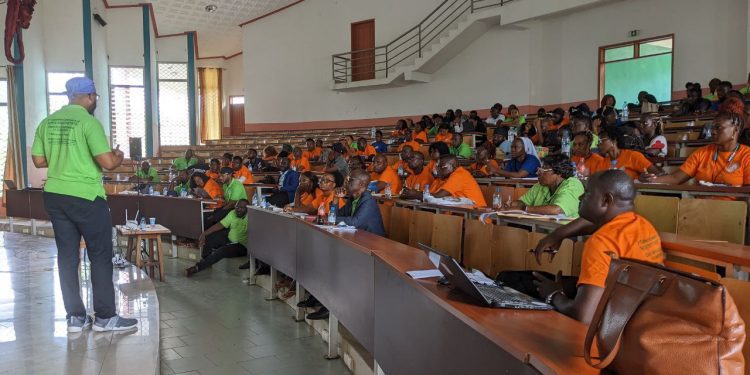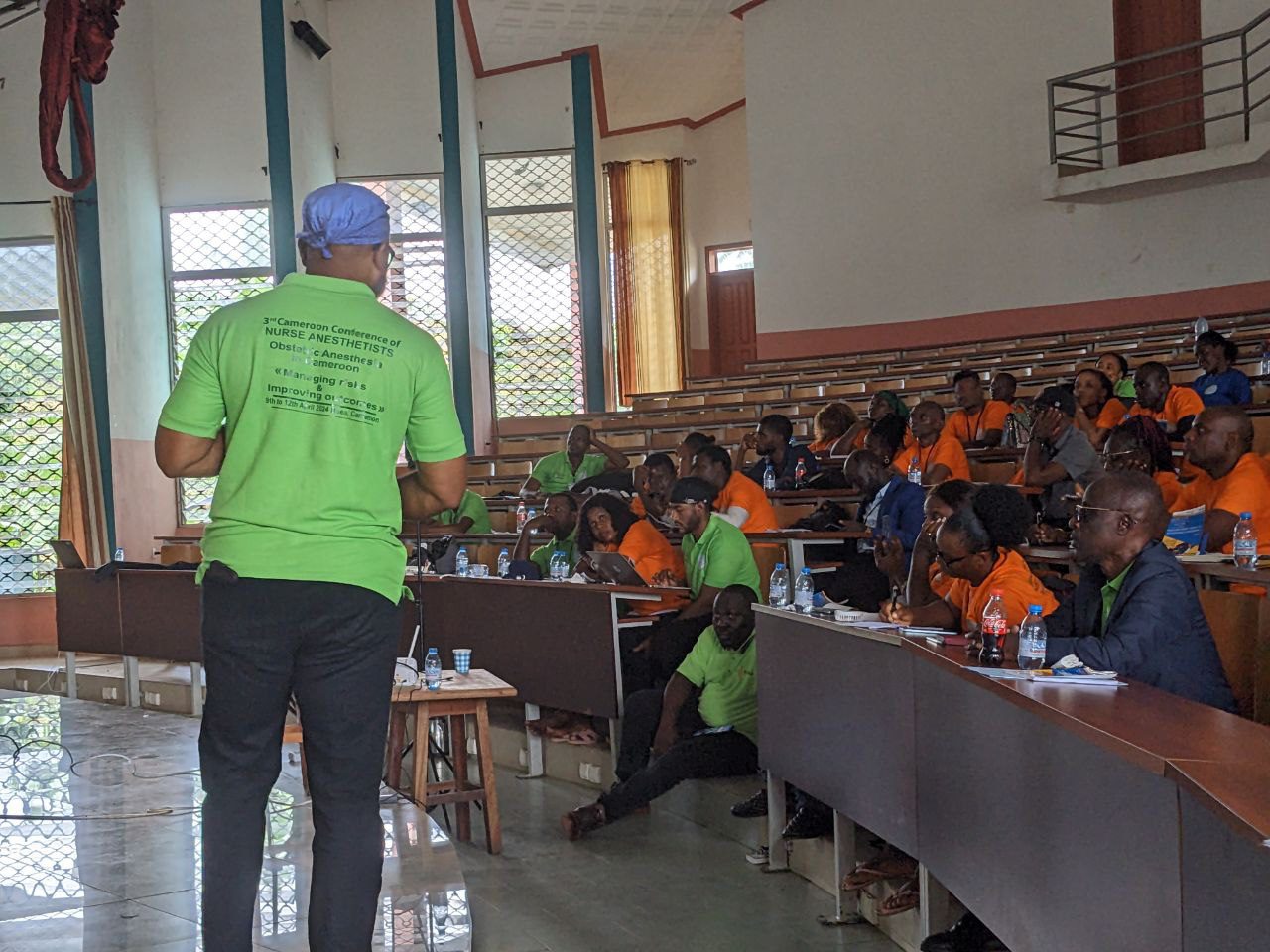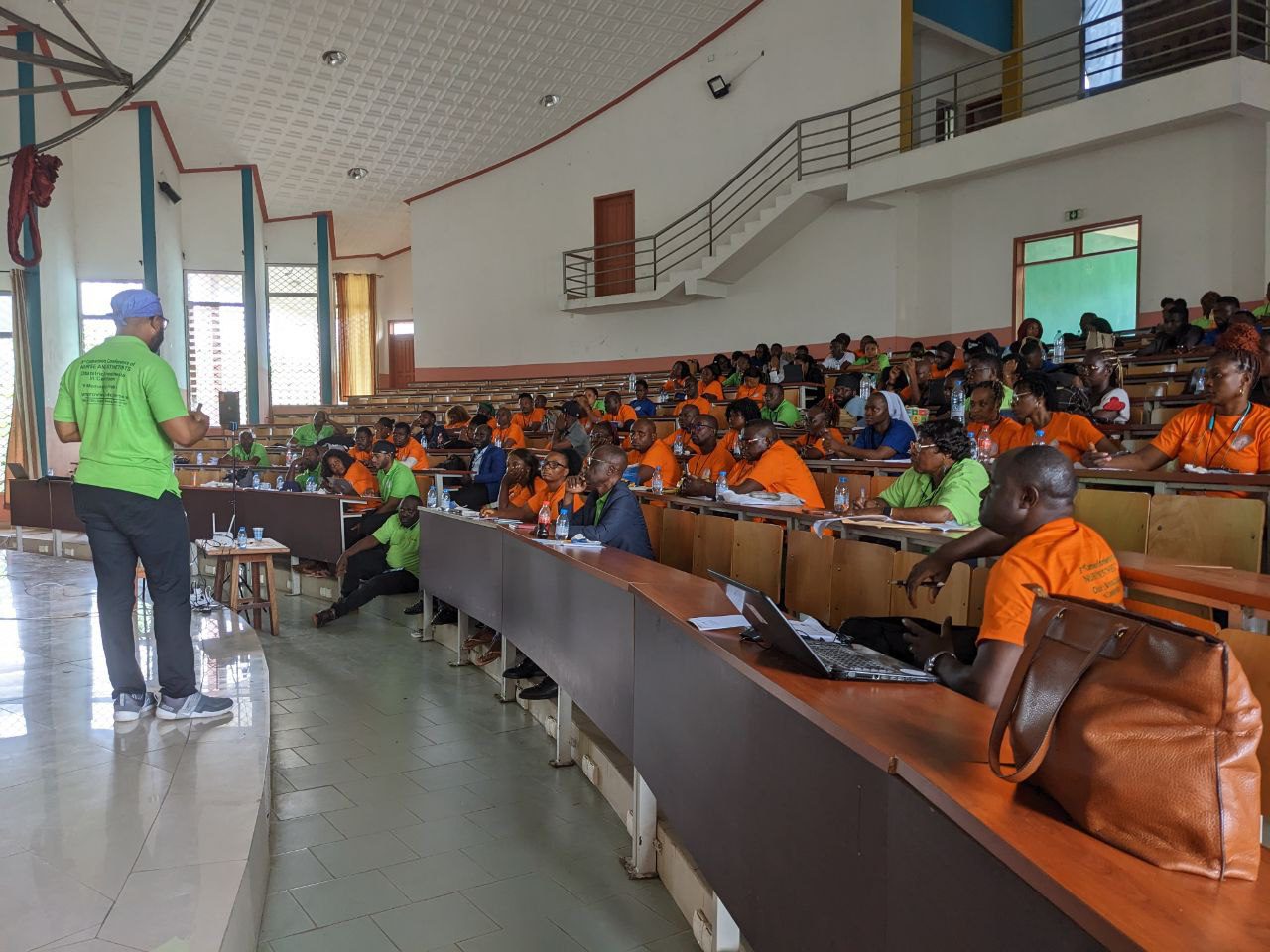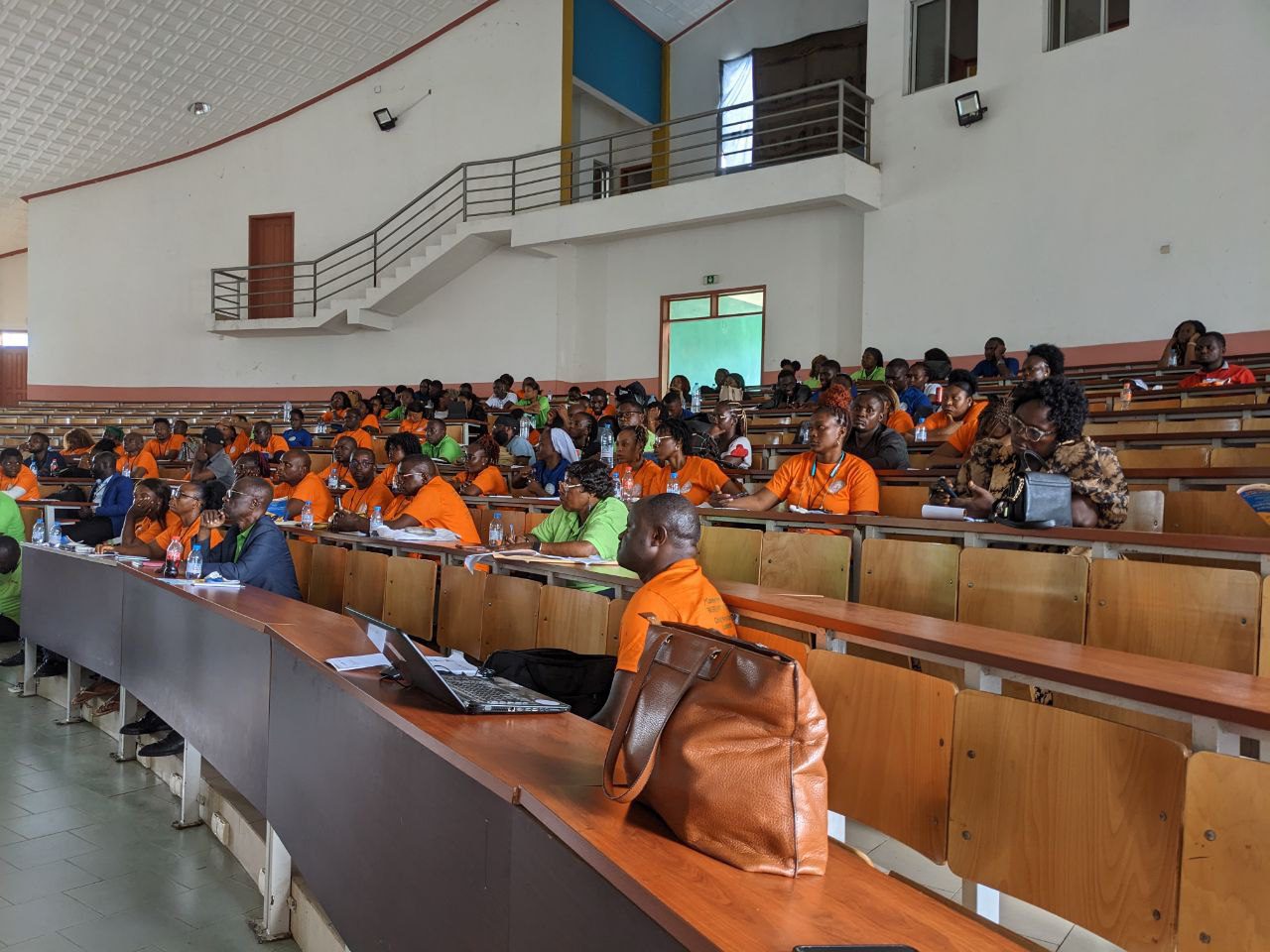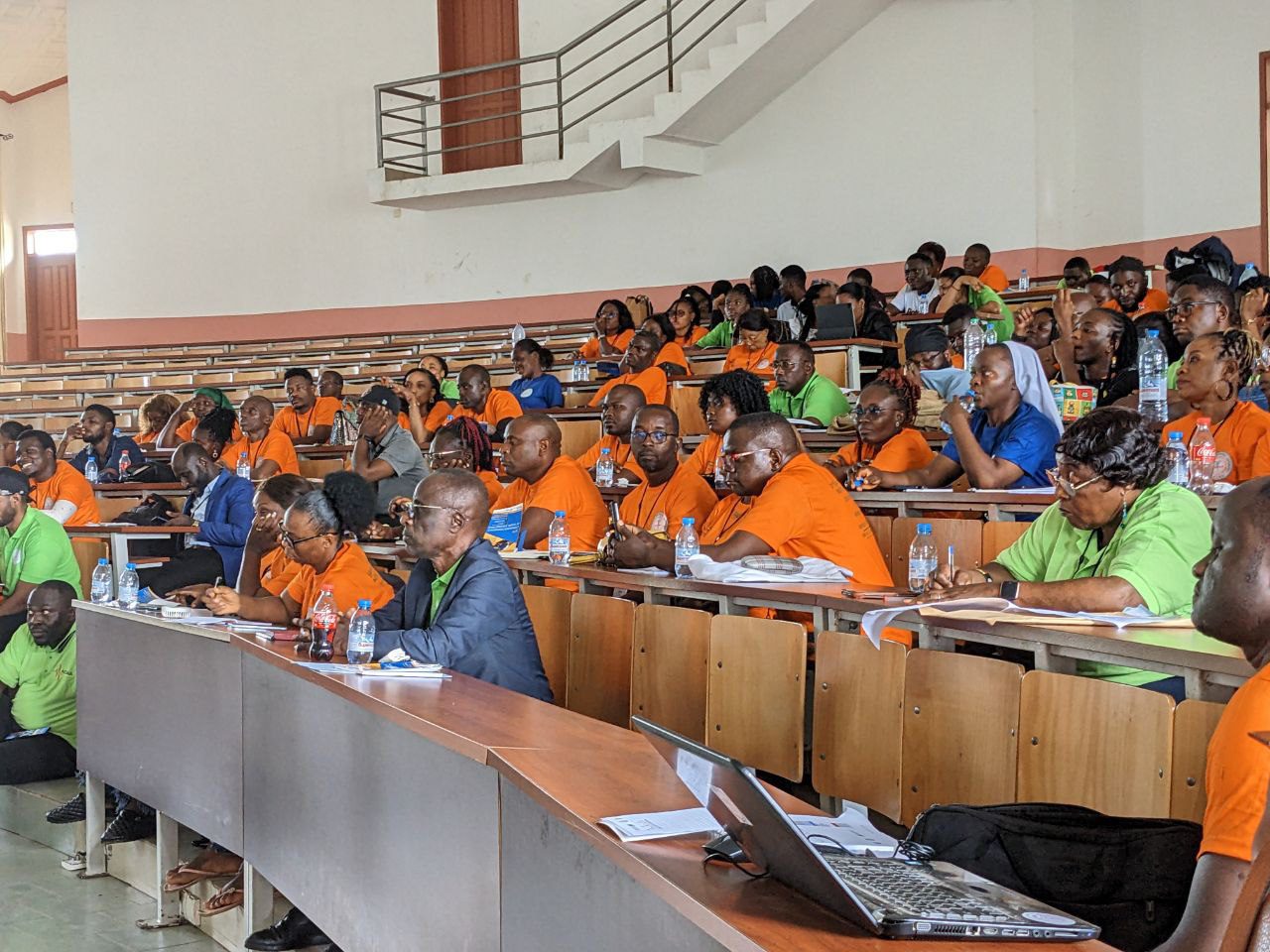Cameroonian medics from across the country have convened at the Faculty of Health Sciences at the University of Buea for a four-day conference focused on managing risks and improving outcomes in obstetric anesthesia.
The conference, which the Association of Cameroonian Nurse Anaesthetists in America and their counterparts in Cameroon organised together, aims to provide attendees with up-to-date information and methods to improve the provision of anaesthesia services to expectant women.
Practicing nurses, students from the University of Yaoundé, and participants from the Faculty of Health Sciences are exchanging ideas and insights on anaesthetic management, particularly in relation to obstetrics.
The platform serves as an opportunity to address the risks associated with obstetric anesthesia and explore strategies to mitigate them for the benefit of both mothers and infants.
Mr. Christian Timbi, a registered nurse anaesthetist from the United States and President of the Association of Cameroonian Nurse Anaesthetists in America, emphasised the significance of the seminar in addressing anaesthesia-related risks prevalent in Africa. .
“Our goal is to empower healthcare professionals here by providing education, resources, and the latest technology to help reduce fatalities associated with anaesthesia,” he said.
Dr. Berinyu Emelinda, an anesthesiologist and intensive care physician at the Faculty of Health Sciences, highlighted the broadening scope of knowledge that participants, particularly students, stand to gain from the conference.
She emphasized the importance of such activities in enriching the understanding and practice of obstetric anaesthesia among students in both Buea and Yaoundé.
Throughout the conference, attendees are delving into various aspects of obstetric anesthesia, including local anesthesia for childbirth, regional anesthesia (such as epidurals and spinal), and general anesthesia.
These discussions aim to provide participants with comprehensive insights into different anaesthesia techniques used during labour and delivery, ensuring they are well-equipped to address diverse clinical scenarios.
It is anticipated that the exchange of ideas and expertise facilitated by the conference will lead to tangible improvements in obstetric anesthesia outcomes across healthcare facilities in Cameroon.
Obstetric anesthesiology refers to anaesthesia services provided at the time of labourr and delivery.
There are three types: local anaesthesia for childbirth is most commonly given as a shot that numbs the area around the vagina before an episiotomy is done or after delivery when stitches are necessary.
Regional anaesthesia (also called epidural, spinal, or systemic anaesthesia) greatly reduces or eliminates pain throughout the birthing process.
General anaesthesia is used for emergencies during the birthing process. An anesthesiologist must administer general anaesthesia in order to induce sleep.


